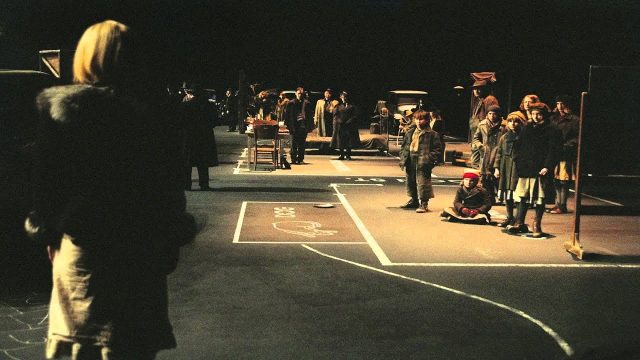This Week You Will Consider Multiple Views of:
- marriage
- America
- superheroes
- the King
- parlor murder victims.
The FAR is putting everyone on notice, that if more articles aren’t sent its way, it will become all baseball trade deadline coverage. Consider this a warning shot! Send articles throughout the next week to ploughmanplods [at] gmail, post articles from the past week below for discussion, and Have a Happy Friday!
At Slate, Heather Schwedel compares the 1950, 1991, and 2022 versions of Father of the Bride:
That brings us to today, and 2022’s Father of the Bride. One of the biggest changes, beyond a Latino-led cast in South Florida, is that in this iteration, Garcia’s Billy and his wife, Ingrid (played by Gloria Estefan), are on the verge of a divorce when the movie begins. Their older daughter and the bride, Sofia (Adria Arjona), has been given 2022-friendly politics: She was the one to propose to her husband-to-be, and in the end of the movie, he takes her last name. Naturally, these things befuddle her father, as does the couple’s plan to move to Mexico to work after the wedding, as does their wish to have a small wedding rather than a more traditional large Cuban one. It seems like Sofia and her fiancé would be the types to have a Zoom wedding instead of rushing things if you ask me, but the movie can’t resist tradition for too long, and things of course culminate with a ceremony.
The Reveal‘s Scott Tobias is in a bad mood, all the better to revisit Lars von Trier’s incendiary Dogville:
Again, none of these developments seem that out of line with the immigrant experience, at least insofar as the undocumented have no equal access to labor and justice, and the pathway to citizenship can be long, murky, and fiendishly conditional. But Von Trier’s darkest assertion in Dogville is how Grace’s hosts become her oppressors: Tom is hopeful that the townspeople will use this opportunity, the “gift” of her arrival, to reveal their good natures during a difficult time, but the situation proves more like a moral stress test that they’re doomed to fail. Rather than inspire the town’s support, Grace’s increasingly compromised circumstances become a reason to exploit her further. That’s an essential marker of Von Trier’s pessimism about society: He believes we’re more Darwinian than our consciences and ideals would seem to allow. If that’s “anti-human,” so be it. The proof is in the nativist pudding.
Noted Crooked Marquee contributor and hood affecionado Craig J. Clark remembers an Elvis that premiered decades before the current Elvis:
When Presley is the center of attention, filmmakers have either narrowed their focus – his Vegas years for the 1981 TV movie Elvis and the Beauty Queen, his 1970 meeting with Richard Nixon for the 1997 TV movie Elvis Meets Nixon and 2016’s Elvis & Nixon – or chosen the soup-to-nuts approach. This is the case with the Colonel Tom Parker-approved docudrama This Is Elvis from 1981, the 2005 Elvis miniseries starring Jonathan Rhys Meyers, and Luhrmann’s maximalist extravaganza, which is told from Parker’s point of view. The one that beat them all to the sequined punch, however, is 1979’s Elvis, directed by John Carpenter and starring Kurt Russell in his breakout role – one that led to an Emmy nomination for his performance and four more collaborations between them.
Joshua Rivera takes to Polygon talks about Amazon’s The Boys and its relationship to the power of the televised image:
Superhero comics are often called modern folklore, a 20th-century art form that comes closest to the mythology of our ancestors. This idea, though seductive, can’t withstand any real scrutiny. Superheroes are — in the real world as well as in The Boys — products carefully safeguarded and monetized by corporations, created via exploited writers and artists to phenomenal profits. Does this public perception of superheroes — as powerful symbols to root for, to see ourselves reflected in, to willingly chronicle entire fictional universes for — outweigh the fact that they are just maintained in the interest of perpetually buttressing corporate profits? Fuck no, says The Boys, a show that is streamed on Amazon Prime, where you can also stream an animated spinoff called The Boys: Diabolical, and someday soon, another spinoff about younger, college-aged superheroes in this world. Maybe they’ll do a reality show next.
For Crimereads, Dianne Freeman runs down the most memorable unlikeable characters in the books of Agatha Christie:
That’s the line mystery writers walk. We generally want a victim sympathetic enough to make readers want to see justice served, but they also have to believe the victim did something bad enough to move the villain to murder. Generally. Once in a while you find a victim who lived their life in such a way that they are mourned by none. No one is calling for justice, and some are figuratively dancing on their graves. Including the readers.
Finally, Today’s Good News: We now have one study that says video games make kids smarter.


